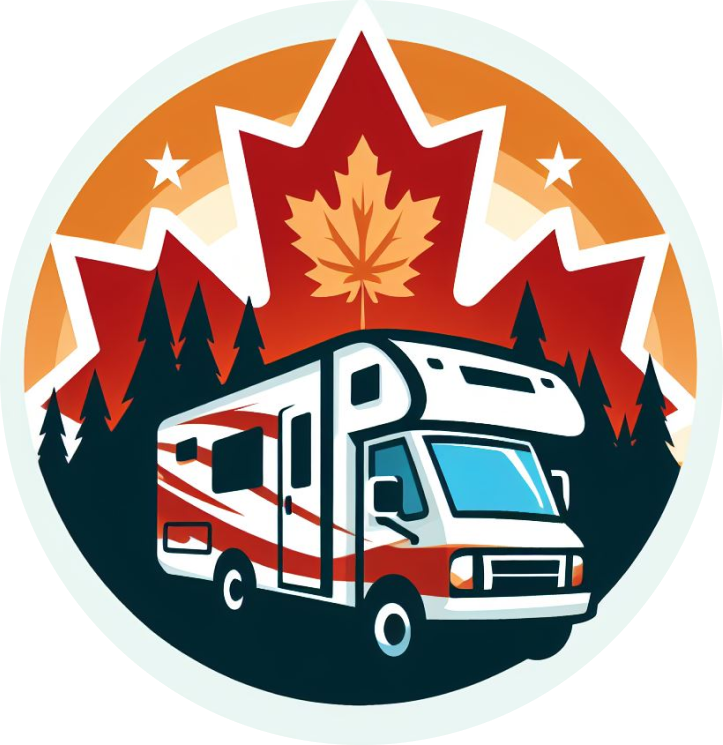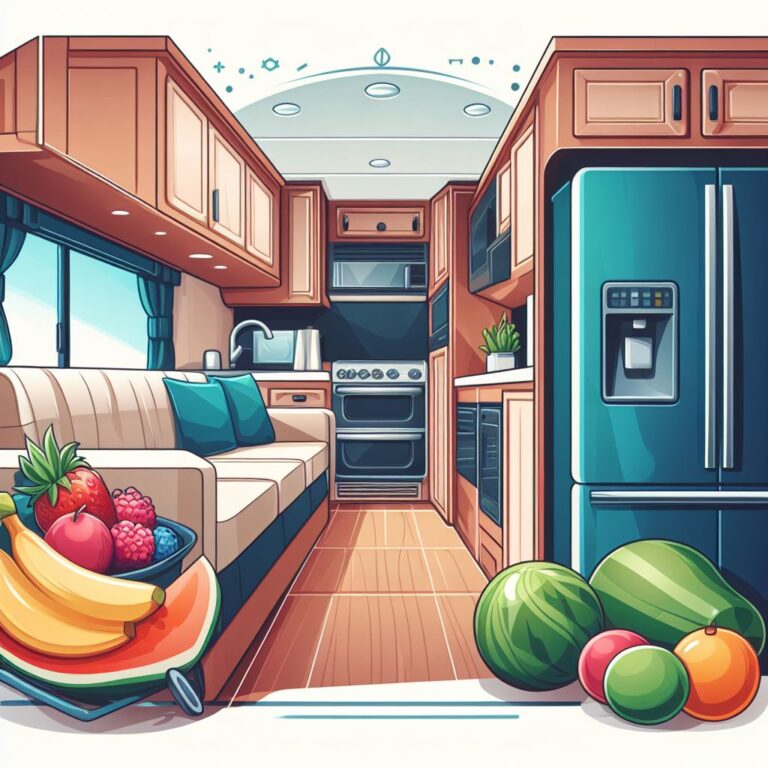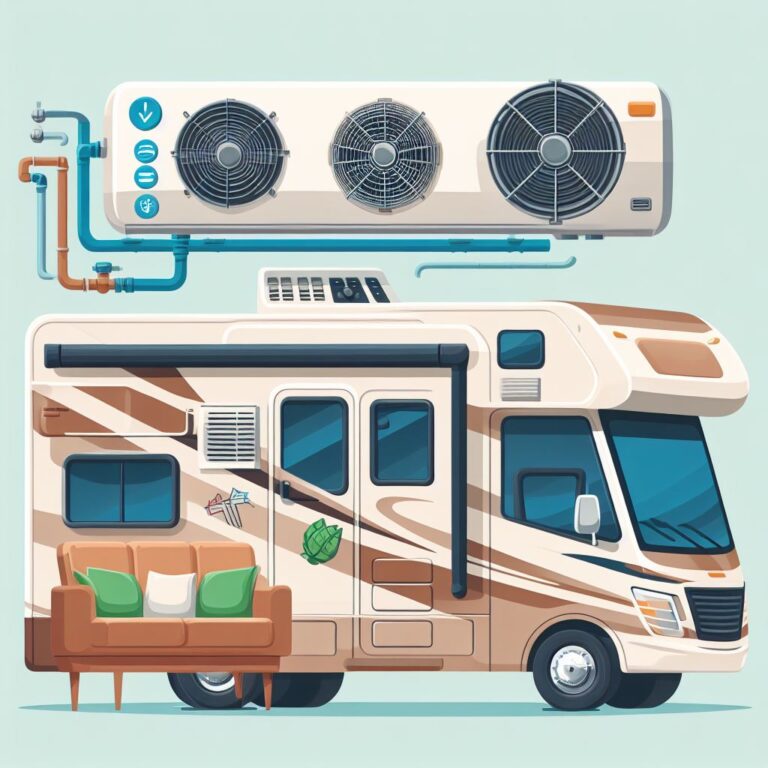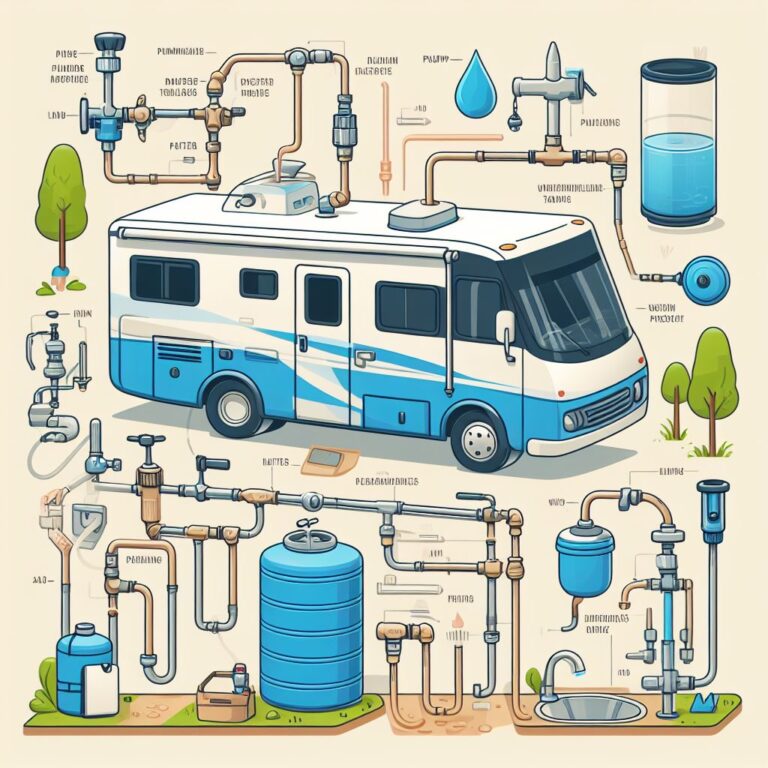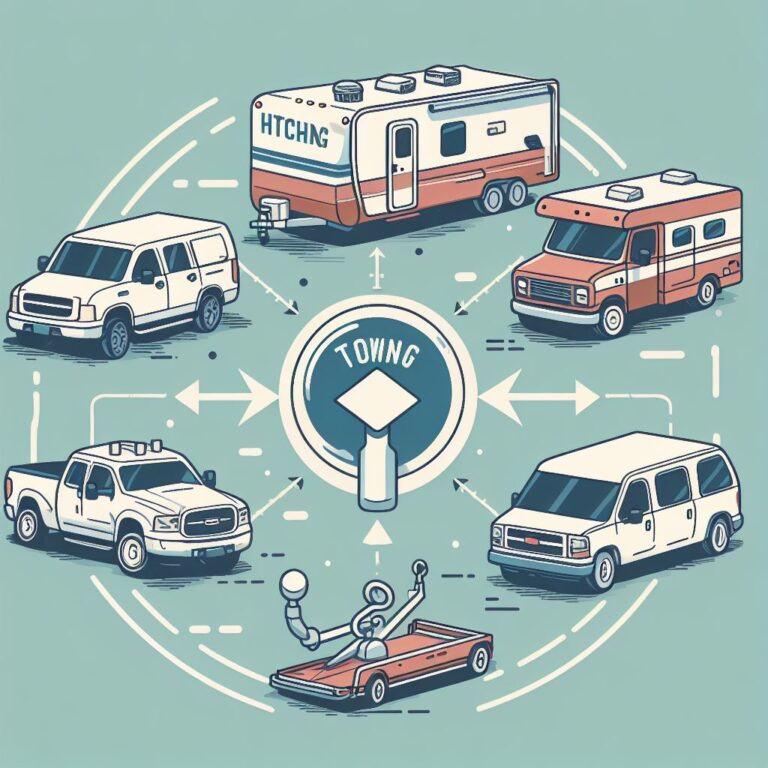How To Choose RV Parts & Accessories
Understanding Your RV Needs
Investing in an RV is akin to committing to another lifestyle. It is vital to grasp a comprehensive understanding of this recreational vehicle to enhance its usability and stretch its durability. However, this understanding is not exclusive to knowing how to drive and operate an RV but extends to recognizing the integral components and parts that make the vehicle operate seamlessly. These components are like the lifeblood of your RV, playing pivotal roles in its overall performance, safety, and convenience of use.
Knowing what your RV needs often depend on the kind of RV you own, your travel habits, and the conditions you’ll typically be encountering. A simpler RV used for infrequent, close-by trips will not have the same requirements as an RV used for long-term, cross-country travel. Similarly, if your RV trips often involve rough terrains and harsh weather conditions, the need for high-performance, durable parts increases notably. Through thoroughly understanding your RV needs, you can make more informed decisions when purchasing parts and extended its lifespan.
Key Factors to Look at When Selecting RV Components
Choosing the right RV components is not just about finding parts that fit; it’s about selecting the highest quality components that will enhance your vehicle’s performance. RV parts serve different purposes, so understanding the role of each component and the effect it will have on your vehicle is crucial. From the engine and transmission to the plumbing system and the aesthetic features, each component plays a significant role, and selecting the right one requires keen attention to detail and extensive knowledge about the item.
Apart from functionality, another essential factor to consider is the durability of the RV components. The RV parts you choose should be able to withstand harsh conditions and last for an extended period. Inferior quality parts might be less expensive, but they may wear out quickly, causing repeated replacements and decreased RV performance. Additionally, compatibility with your specific RV model is paramount. One should consider factors like part size, fitting, and interface with other RV systems when selecting components. Doing this will save you from potential inconveniences and ensure your RV remains in top condition.
Assessing the Quality of RV Parts
Before investing in parts for recreational vehicles (RVs), examining the quality of said parts is essential to guarantee their durability and efficiency. Many factors play into a part’s quality, and it’s crucial to be knowledgeable about these to prevent poor purchases. Material composition, manufacturing processes, brand reputation, and safety certifications are just some of the key evidence that point towards the caliber of an RV part.
Material composition often signals the longevity and resilience of a part. For instance, RV parts made of stainless steel or hardened plastic typically exhibit higher durability compared to those made of lesser materials. Similarly, a part’s manufacturing process directly influences its efficiency. High-quality RV parts undergo rigorous testing and quality control procedures to ensure they perform well under different conditions. Brand reputation is another defining feature. Established brands, more often than not, assure quality due to their sustained market presence and consumer trust. Also, safety certifications reflect the adherence of a part to established safety standards, which not only ensures optimal performance but also safeguards against potential harm.
Importance of Compatibility in RV Parts and Accessories
One key aspect often overlooked by RV owners in their hunt for parts and accessories is compatibility. This refers to the ability of a particular item to function effectively and seamlessly with the existing structure and components of the recreational vehicle. It is crucial to remember that not every accessory or part on the market will work perfectly with different RV models. Therefore, due diligence must be exercised during selection to ensure the parts or accessories chosen are not only high-quality but also compatible with your specific RV make and model.
The consequence of overlooking compatibility can range from minor inconveniences to major operational issues. For instance, installing a non-compatible part could result in it not functioning properly, leading to a compelling need for another replacement sooner than anticipated. More critically, a wrong part could cause significant damage to other components of the RV. Thus, RV owners should make an effort to understand their vehicle’s specific needs and specifications to avoid potential turmoil and extra expenses in the future.
Making the Most of Online Reviews for RV Parts
Online reviews can be a goldmine of information for RV enthusiasts looking for the best RV parts and accessories. These reviews, most of which are provided by people who have used a product or service, offer unique insights about the quality, reliability, and value for money that each part provides. From these, you can gain firsthand knowledge on whether a specific piece is worth the investment or if it falls short of the mark. Reading through them can provide a broad perspective and make you a more informed buyer.
One important fact to remember, however, is that not all product reviews are created equally. You must know how to identify credible reviews from biased ones. Genuine reviews typically provide specific details about the product’s performance and often include both the pros and the cons. On the other hand, overly vague or extremely positive reviews might not be as trustworthy. With these tips in mind, you should be able to make the most of online reviews while shopping for RV parts and accessories.
Benefits of Buying Genuine RV Parts
Purchasing genuine parts for your recreational vehicle (RV) comes with a slew of benefits that ultimately contribute to a better and safer travel experience. First and foremost, original parts are designed and tested by manufacturers specifically for your RV model. This lends itself to enhanced performance and operational efficiency. As these parts perfectly fit and function with the existing components, they not only significantly uplift the performance level but also reduce the likelihood of premature wear and tear.
Further, investing in genuine parts equates to prioritizing safety. Unlike counterfeit or knock-off alternatives, original parts adhere to stringent safety regulations and standards. They have undergone rigorous quality checks and certifications, ensuring they can withstand varying conditions without compromising the vehicle’s operation or the passengers’ safety. Moreover, they usually come with warranties, offering peace of mind and protection against potential defects or failures. So, while genuine RV parts might demand a higher initial investment, in the long run, they offer a valuable return in terms of reliability, durability, and overall vehicle integrity.
Price Vs Quality: Striking a Balance
In the realm of RV components, the tussle between price and quality is not uncommon. This friction typically arises when RV owners are trying to improve their vehicle without having their wallets take a significant hit. Cost-effectiveness is key but doesn’t necessarily equate to purchasing the cheapest parts available.
Striking a balance between price and quality involves understanding the long term implications of your choices. High-quality parts might have a higher upfront cost, but their durability and performance often outshine cheaper, substandard components. Similarly, cheaper parts may seem like a bargain initially but could incur more frequent replacement costs or lead to extensive damage. Hence, RV owners need to bear in mind that sometimes a larger initial investment can result in pronounced savings down the line. Ensuring the longevity of your RV essentially boils down to making informed decisions that factor in both the initial price point and the quality of the components.
Finding Reliable RV Parts and Accessories Suppliers
One of the essential steps in maintaining and upgrading your recreational vehicle is finding reliable suppliers for RV parts and accessories. A reliable supplier can make your RV ownership journey smoother, provide quality products, and offer expert advice when you need it. Trustworthy suppliers tend to have in-depth knowledge of various RV components and can guide you in making the right choices. Such suppliers often have a broad range of products, ensuring that you find the specific parts or accessories that will match your RV model.
The process of finding reliable suppliers can be daunting. To simplify your search, you should consider factors such as the reputation of the supplier, diversity of stock, costs of parts and accessories, and customer service. Online reviews on various platforms can provide a wealth of information in this regard. It is also prudent to reach out to the RV owner community for recommendations. A reliable supplier will not only have positive feedback but will also be responsive to queries and complaints, providing an indication of their dedication to excellent customer service.
Maintaining Your RV Parts for Longevity
Regular maintenance of RV parts contributes significantly to their longevity. Adhering to routine checks, cleaning, and minor repairs can prevent significant issues from emerging, helping to extend the life span of these components significantly. Proper upkeep includes tasks like checking the tire pressure, examining the RV’s roof for leaks, cleaning or replacing filters, and flushing and sanitising the water systems. You should also not ignore the crucial task of checking the engine and generator oil levels frequently.
Conversely, ignoring minor issues or delaying the replacement of impaired components can exacerbate the problem, often leading to hefty repair costs, shorter life span, and lower performance for your RV. Notably, RV parts are subjected to rough conditions and often bear considerable weight, enhancing the importance of regular maintenance. Importantly, using the manufacturers recommendations regarding specific timelines and methods for maintenance tasks is also crucial in ensuring the wellbeing of your RV parts and their longevity.
When to Replace Your RV Parts and Accessories
The lifespan of RV parts and accessories is intimately linked with their usage, environment, and maintenance habits. Whether it’s day-to-day components like batteries and tires or less frequently used items such as water heaters and generators, every part of your RV has a particular life expectancy. Knowing when it’s time to replace these items can save you unexpected outages that can hamper your travel plans. However, it’s worth noting that abruptly failing parts aren’t always the result of their life cycle. Sometimes, it could be due to poor installation, faulty wiring, or even lack of regular maintenance.
An effective way to stay on top of your RV components’ life cycle is to dedicate time periodically for a thorough inspection of the RV’s critical components. Look for any signs of wear and tear: for instance, RV tires should be replaced roughly every 3-6 years regardless of their appearance, as aged rubber can fail under pressure. Similarly, replace air filters to ensure optimal fuel efficiency of your RV. Lastly, take note of any unusual or unexplainable behavior from your RV systems. This could be an indicator that a particular component is near its end and needs immediate replacing. Regular preventative maintenance, attentive observation, and immediate response to issues can help prolong the lifespan of your RV’s components and preemptively manage their replacement.
How can I figure out when to replace my RV parts and accessories?
You can understand this by regularly checking for signs of wear and tear, inspecting performance, and seeking routine maintenance checks. If a part is no longer functioning properly or affecting the overall performance of your RV, it’s time to consider a replacement.
What should I consider when selecting RV components?
Key factors include the brand, quality, compatibility with your RV model, price, and the reliability of the supplier. It’s advised to invest in genuine parts for the best performance and longevity.
How can I assess the quality of RV parts?
Quality can be assessed by looking at the material used, the brand reputation, and the warranty provided. You can also read online reviews or seek expert advice.
Why is compatibility important in RV parts and accessories?
Compatibility ensures that the parts and accessories fit perfectly and function properly in your RV. Incompatible parts can lead to poor performance, quick wear and tear, and even potential damage to your RV.
How can online reviews help in choosing RV parts?
Online reviews provide firsthand information from users about the product’s performance, quality, and compatibility. They can help you make a more informed decision.
What are the benefits of buying genuine RV parts?
Genuine parts are designed to fit perfectly in your RV model, ensuring optimal performance. They are often more durable, reliable, and come with a warranty for peace of mind.
How do I strike a balance between price and quality when buying RV parts?
While it’s important not to compromise on quality for the sake of price, there are suppliers who offer good quality parts at reasonable prices. Do your research, compare prices, but always put quality first.
Where can I find reliable RV parts and accessories suppliers?
Reliable suppliers can be found online, at RV shows, or through recommendations from other RV owners. Make sure to check their reputation, reviews, and return policies before making a purchase.
How can I maintain my RV parts for longevity?
Regular cleaning, timely repairs, using the right kind of lubricants, and getting routine inspections can help in maintaining the longevity of your RV parts.
Is replacing all RV parts and accessories at once recommended?
Replacing all parts at once is not necessary unless they are all worn out. It’s best to replace parts as and when they show signs of damage or malfunction. Regular checks and maintenance can help identify such issues.
- How To Choose TIPHOPE RV Accessories - February 10, 2024
- How To Choose Joinfworld RV Accessories - February 10, 2024
- How To Choose Conntek RV Accessories - February 9, 2024
